| Dinosaurs, Women in Science, Fossil "Butterfly" and more VIEW THIS EMAIL IN YOUR BROWSER > |
|
|
 |
|
 |
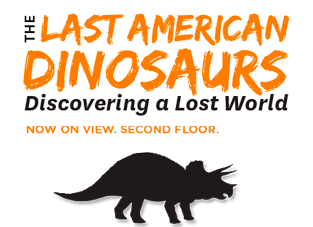 |
| Credit: Smithsonian Institution.
|
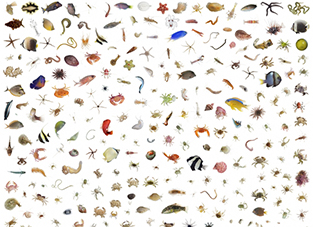 |
|
© David Liittschwager. |
|
| Life in One Cubic Foot |
The Last American Dinosaurs |
Discover what a cubic foot of land or water reveals about the diversity of life on the planet. 1st Floor.
More >
|
Walk through time to explore America's last dinosaurs, their lives, and their ultimate demise. 2nd Floor.
More >
|
| MORE EXHIBITS > |
 |
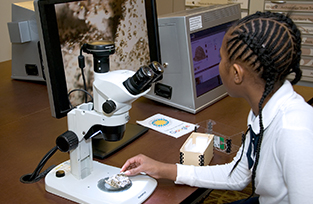 |
| Credit: Smithsonian Institution.m.
|
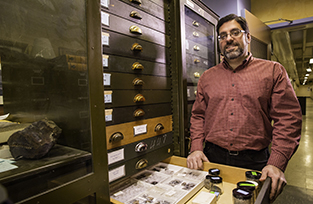 |
|
Credit: Smithsonian Institution. |
|
| Smithsonian Science How: Paleontology |
Field Trip Days Sponsored by Google |
Live Webcasts: Mar. 10, 11 a.m. & 2 p.m. EST
Register for our NGSS-aligned webcasts with paleontologist Matt Carrano. He will discuss "What Tiny Fossils Explain about Big Dinosaur Ecosystems."
Watch a video preview and register > |
From March through June 2016, select middle school groups can receive free buses, IMAX tickets, lunch vouchers for students, school programs in
Q?rius, and interactive experiences in museum exhibits. The program is only open to Title I middle schools from the Washington, D.C., metro area.
Read more in the Q? Blog >
|
|
MORE EDUCATIONAL PROGRAMS > |
 |

Butterfly.jpg
(Left) Jim DiLoretto; (Right) Jorge Santiago-Blay and Conrad Labandeira. Credit: Smithsonian Institution. |
| Fossilized Butterfly Look-Alike |
New Global Genome Initiative Website |
Newly discovered fossils from an extinct group of insects, Kalligrammatid lacewings, share a remarkable resemblance to modern-day butterflies. In a new paper, Smithsonian paleobiologist Conrad Labandeira discusses this incredible example of convergent evolution.
Read more >
|
The Global Genome Initiative (GGI) is a bold, science-based endeavor to capture and understand the Earth's genomic biodiversity, preserve it on ice in biorepositories worldwide, and make it accessible to researchers everywhere through the Global Genome Biodiversity Network (GGBN) in perpetuity.
Read more > |
| MORE RESEARCH > |
 |
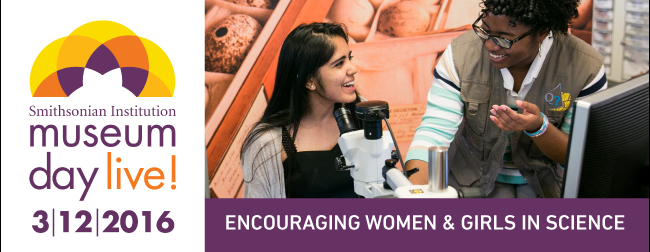
Credit: Smithsonian Institution. |
| Museum Day Live! |
Nerd Night DC, at DC9 |
Saturday, March 12, 10 a.m. - 5 p.m.
Celebrate girls and women in science! Join us for a special edition of the Smithsonian's signature "Museum Day Live!" event.
Learn more >
|
Saturday, March 12, 6 p.m., at DC9, 1940 9th St, NW, Washington, DC At Nerd Nite DC, experts from the National Museum of Natural History take a step back in deep time to uncover chapters in Earth’s 4.6 billion-year-old story that are relevant to our lives today.
See the schedule >
|
| The Environmental Film Festival |
Experts Are In! |
March 19, 20, 25 and 26
See award-winning environmental films and join us for discussions with filmmakers, conservationists, and scientists about marine ecosystems, wildlife preservation and the Anthropocene.
Learn more and RSVP > |
Every week, museum experts are stationed in Q?rius and exhibition halls to talk with visitors about a variety of natural history topics. March programs include:
March 16: Human Origins
March 17: Marine Biology - Slugs that Sting!
March 24: Australian Aboriginal Music and Art
View more events >
|
| MORE EVENTS > |
 |
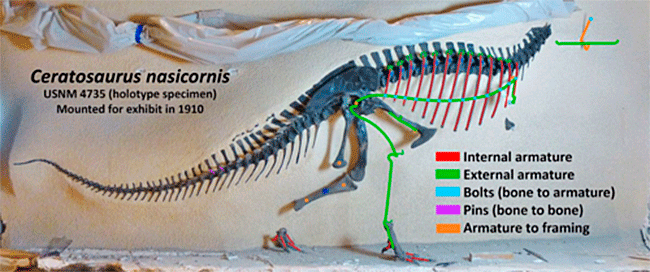 From the National Fossil Hall. Credit: Smithsonian Institution.
From the National Fossil Hall. Credit: Smithsonian Institution. |
Show Your Support
|
Volunteer Opportunities for Teens |
Generous donors like you help put into focus a new vision for the National Fossil Hall. Your gift will help us renovate this beloved hall and the fossils that call it home, advance innovative science and enable rich, new learning experiences for a diverse, worldwide audience.
Give today >
|
Calling all DC-area teens in grades 9-11! Applications are due March 18 to volunteer with our Q?Crew. Get free training in how to engage your peers in interactive, science-based activities.
Sign up for volunteer opportunities > |
| MORE WAYS TO GET INVOLVED > |
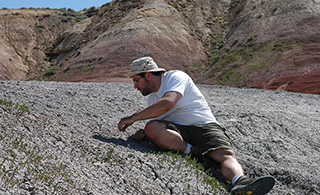 |
BANNER IMAGE:
Paleontologist Dr. Matthew Carrano searches for fossils.
Image Credit: Gina Wesley Hunt.
|
|
|
| © 2016 Smithsonian's National Museum of Natural History | 10th St. and Constitution Ave., NW | Washington, DC 20013 |
CHANGE EMAIL PREFERENCES > |
|